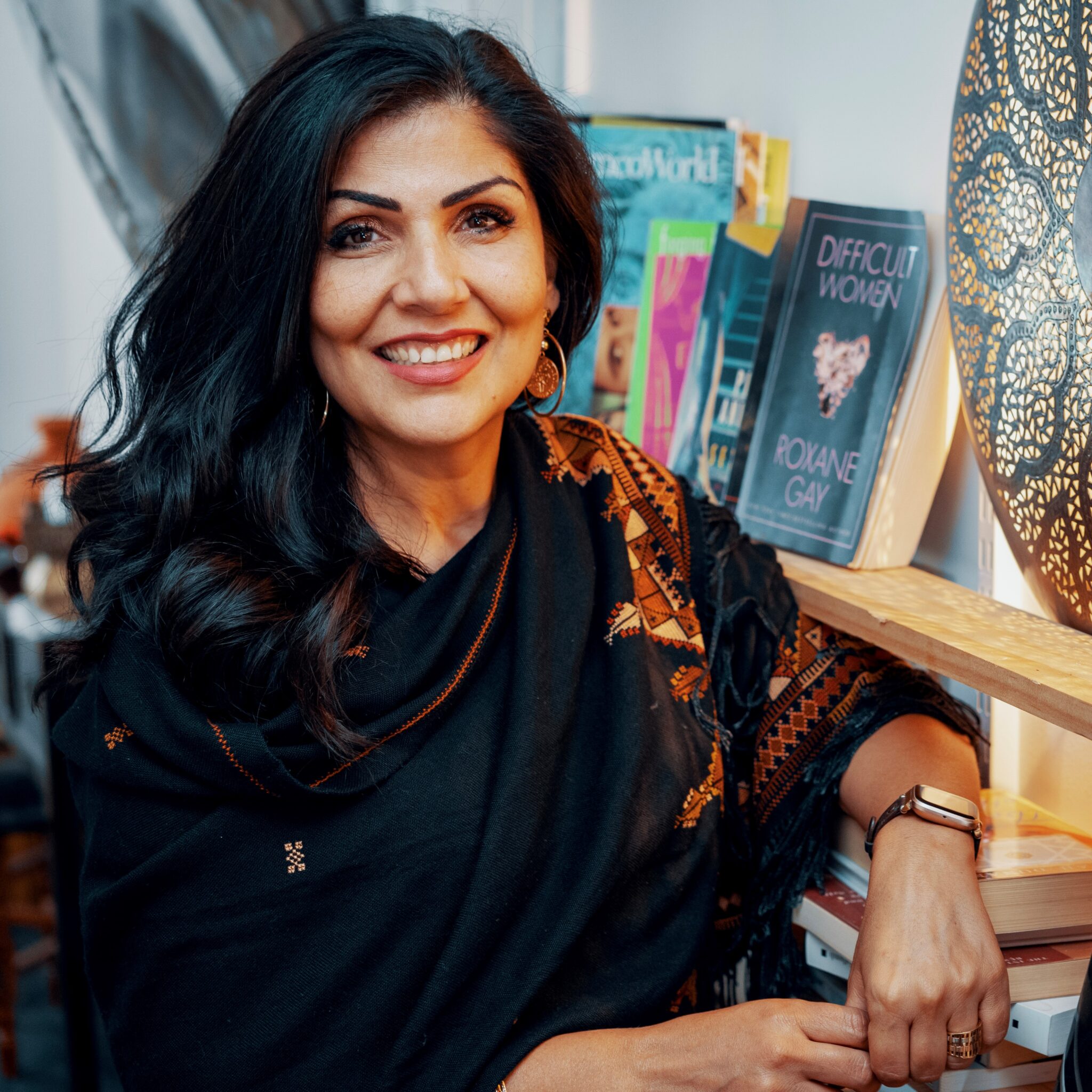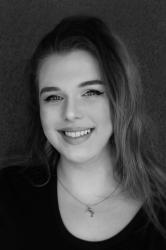Playwright Samah Sabawi on displacement, activism, and THEM
The concepts of displacement and seeking refuge may seem like things of the past for some, but for so many, they are still daily struggles.
With the United Nations Refugee Agency estimating that there are over 80 million people currently who have been forcibly displaced, and over 26 million who are considered refugees, it is absolutely no surprise that plays like THEM exist.
The dichotomous battle one must face when choosing to leave their home and everything they know in order to find a ‘better life’ is impossible to imagine, but playwright Samah Sabawi has done a brilliant job of painting the picture in her play. Following a couple and their child deliberating whether they should leave their war-torn city, THEM is rooted in anecdotes and stories from those who have been directly impacted by war, conflict, and dislocation.

Samah is an author, playwright, scholar, commentator and poet who wages ‘beautiful resistance’ through her art and work. A recipient of multiple awards both nationally and internationally, Sabawi’s theatre credits include the critically acclaimed plays Tales of a City by the Sea and THEM. She is also co-editor of Double Exposure: Plays of the Jewish and Palestinian Diasporas, winner of the Patrick O’Neill award and co-author of I Remember My Name: Poetry by Samah Sabawi, Ramzy Baroud and Jehan Bseiso, edited by Vacy Vlazna, winner of the Palestine Book Award. Sabawi is host of the webinar/podcast series The Book Room. Her poems are published in magazines and books including West End Press’s With Our Eyes Wide Open: Poems of the New American Century and Just World Books’ “Gaza Unsilenced!” Her essays and op-ed pieces appear in various media outlets including The Australian, Al-Jazeera, Al-Ahram, The Globe and Mail, The Age and The Sydney Morning Herald. Samah Sabawi received a Doctor of Philosophy from Victoria University for her thesis titled Inheriting Exile, transgenerational trauma and the Palestinian Australian Identity.
THEM was initially supported by the Melbourne Theatre Company, before moving to a sell-out season at La Mama Theatre. It now returns once more for an extremely limited run at Arts Centre Melbourne from July 28 to 30.
Can you tell me a bit about your process of writing THEM?
Samah: It began in the most unexpected of places. I was on a speaking tour in Finland in 2015, at the same time as the surge in the Syrian refugee crisis was happening. On Finland’s national day, I was advised to stay in my hotel room as nationalists and alt right activists were expected to take to the streets to protest against what they called ‘the flood of refugees and asylum seekers’ whom they had labelled as criminals, Islamists, terrorists and paedophiles. I was warned that day that I looked too brown to be safe, so I stayed in my hotel and I started to reflect on my own family’s refugee story as well as the stories of so many other refugees I knew.
I was born in Gaza and my family were made refugees in the aftermath of 1967. And although I’ve made it to safety, many of my extended family members have not. I grew up hearing many stories about refugees and the creative ways they try to escape from the horrors of their daily lives under occupation, under siege and in war zones. Ways including swimming in sewage rivers, escaping through underground tunnels and riding on leaky boats to Europe. So I felt the need to write a story that would convey to the world how difficult the choice to leave one’s home is, and the horrific circumstances that compel people to run for their lives, away from everything they’ve known.
I sat and began to write in my hotel room what became the first draft. This was followed by three years of consultations with family members in Gaza and in Yarmouk camp in Syria, as well as other refugees from Syria who are here in Australia now. I also engaged with in depth research and thorough dramaturgical developments prior to staging the work.
It seems that the content of THEM is relevant now more than ever, with so many refugees displaced globally every day – how have you translated those experiences onto the stage?
Samah: I tried to focus entirely on the stories I’m telling and the characters who experience these stories. There is great power in truth, and although my characters are fictional, the stories are real, the circumstance are real and based on real experiences of people I know, and have spent a considerable amount of time with. And while I am aware that it would be impossible to truly represent the entire spectrum of the refugee experience, I believe that being authentic in the representation of these powerful stories by creating relatable characters and by zooming in on their personal and private interactions, bringing out the humour and the music as well as the tragedy in their lives, I believe this allows me to offer the audience a glimpse into life, death and survival in a war zone. I hope that this helps to engage the audience’s curiosity enough so that they may want to learn more and become more involved with the issues.
Some members of the ensemble have also been displaced or fled their home countries – how has working with artists that intrinsically understand the themes of the story affected the rehearsal and development process?
Samah: As of the time of responding to this question, our mostly new cast has not yet entered the rehearsal space. But from prior experience in developing the work and staging it in its first season, as well as in working with my previous play Tales of a City by the Sea, I can say that it is inspiring, empowering and healing to work with artists who have experienced displacement and exile.
Australia is still behind in being truly representative in its mainstream art platforms, and so quiet often artists of diverse backgrounds struggle for roles and for recognition. Staging plays that engage with marginalized communities and voices, gives the artists not only a role to play, but a voice to tell the stories of their communities and a home to belong to in the theatre space. There is no word to explain the bond between us, knowing that our stories are represented, and that we are doing the representation ourselves. To feel that our families and communities are able to come and sit down in a theatre and to see their lives, their stories, and their voices reflected – there is tremendous power and healing in that.
Why do you think it’s important to use theatre as a tool for social, political, and cultural change?
Samah: Stories are powerful reflections of our world. They take us to places we never dream of travelling to, they place us in worlds beyond our reach, they make us step out of our comfort zones and that can sometimes alter our perceptions and challenge our beliefs. Of all the forms of storytelling, I happen to be in love with the theatre form. I love the idea of a big room divided in two, one part is filled with people from the real world, and the other has people pretending to be the real world. Those in the real world, the audience, they sit, watch, laugh and cry at the unreal representation of their reality – this is the magic of theatre!
THEM runs at Arts Centre Melbourne’s Fairfax Studio from July 28 – 31 July.
Tickets and more information can be found at the Arts Centre Melbourne website.




